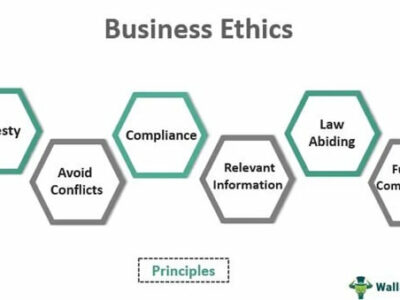
Corporate social responsibility (CSR) is a broad term that encompasses a company’s efforts to operate in a way that is beneficial to society and the environment. CSR activities can include things like reducing environmental impact, promoting diversity and inclusion in the workplace, and giving back to the community.
There are many reasons why companies choose to engage in CSR. Some do it because they believe it is the right thing to do, while others do it because they believe it will improve their bottom line. There is evidence to suggest that CSR can lead to a number of benefits for companies, including increased customer loyalty, improved employee morale, and reduced risk of regulatory scrutiny.
There are many different ways that companies can engage in CSR. Some common activities include:
- Environmental initiatives: Companies can reduce their environmental impact by things like using less energy, water, and paper; recycling and composting; and investing in renewable energy sources.
- Charitable giving: Companies can donate money or products to charitable organizations that support causes that are important to them.
- Volunteerism: Companies can encourage their employees to volunteer their time to local charities.
- Diversity and inclusion: Companies can promote diversity and inclusion in the workplace by hiring and promoting people from all backgrounds, and by creating a workplace culture that is welcoming and supportive of everyone.
CSR is a complex and evolving concept. There is no single definition of CSR, and what constitutes “good” CSR can vary from company to company. However, there are a number of core principles that most CSR initiatives share, including:
- Accountability: Companies should be transparent about their CSR activities and report on their progress.
- Voluntary: CSR should be voluntary, not forced.
- Sustainable: CSR should be long-term and have a lasting impact.
- Inclusive: CSR should benefit all stakeholders, including employees, customers, communities, and the environment.
CSR is an important part of the modern business landscape. Companies that engage in CSR can benefit society, the environment, and their bottom line.
Here are some additional benefits of CSR:
- Increased customer loyalty: Studies have shown that customers are more likely to do business with companies that they perceive as being socially responsible.
- Improved employee morale: Employees who work for companies that engage in CSR are more likely to be engaged and productive.
- Reduced risk of regulatory scrutiny: Companies that engage in CSR may be less likely to be targeted by regulators.
If you are considering implementing a CSR program, there are a few things you should keep in mind:
- Start small: Don’t try to do too much too soon. Start with a few small projects that you can realistically complete.
- Be transparent: Communicate your CSR activities to your stakeholders.
- Get employee buy-in: Involve your employees in your CSR activities. This will help to ensure that your program is successful.
- Measure your results: Track your progress and measure the impact of your CSR activities. This will help you to improve your program over time.
CSR is a valuable tool that can help companies to improve their bottom line, benefit society, and create a more sustainable future.






